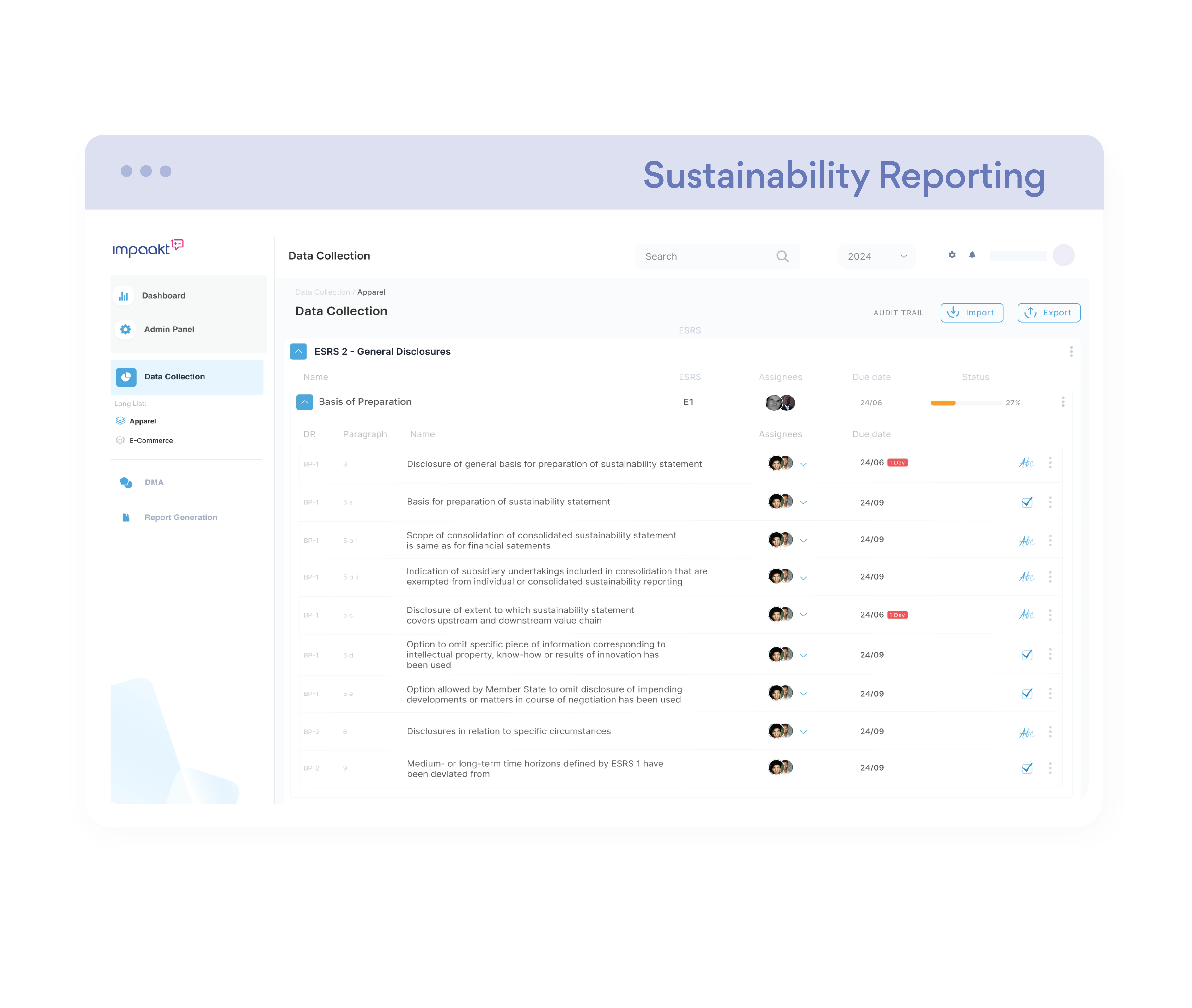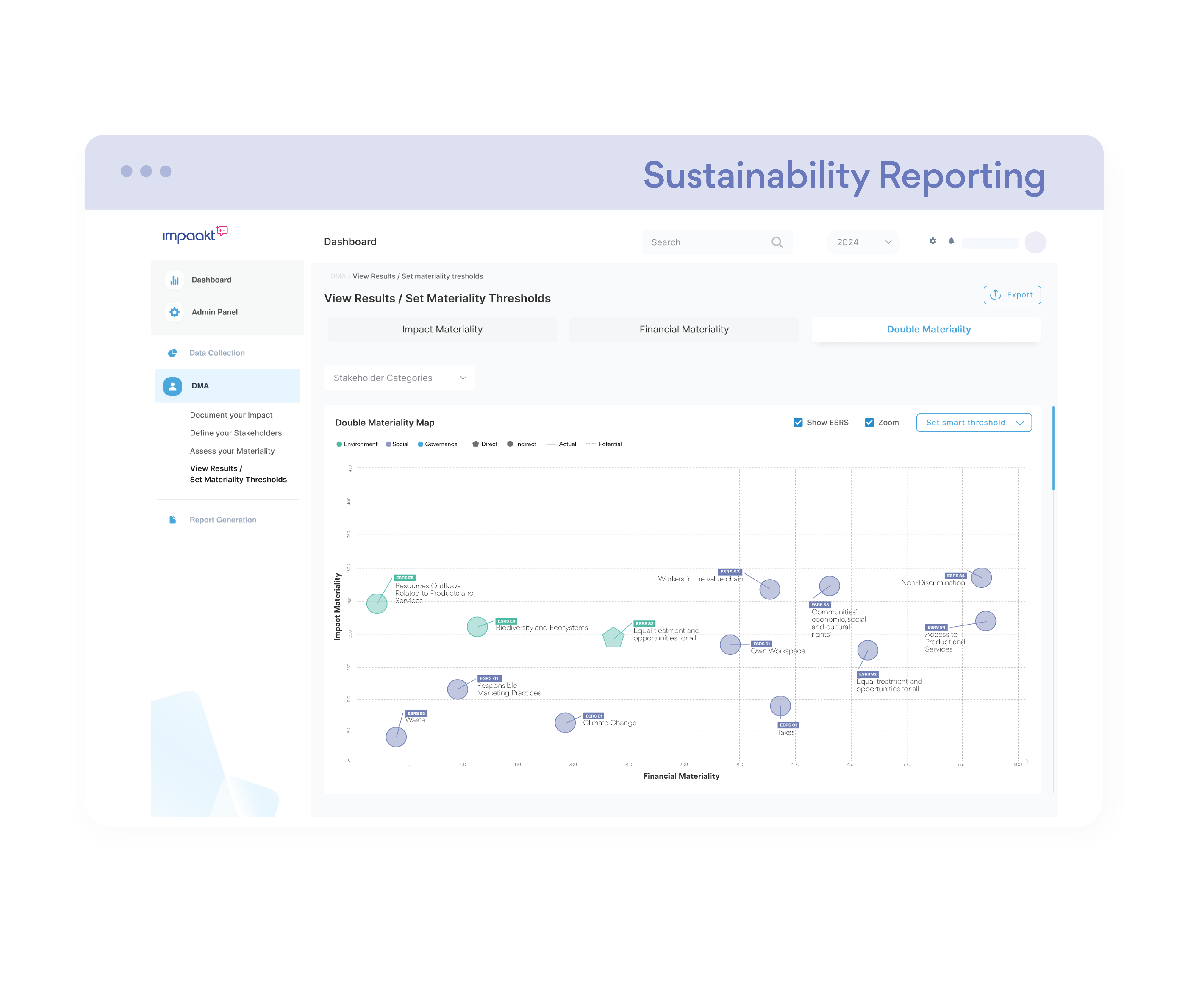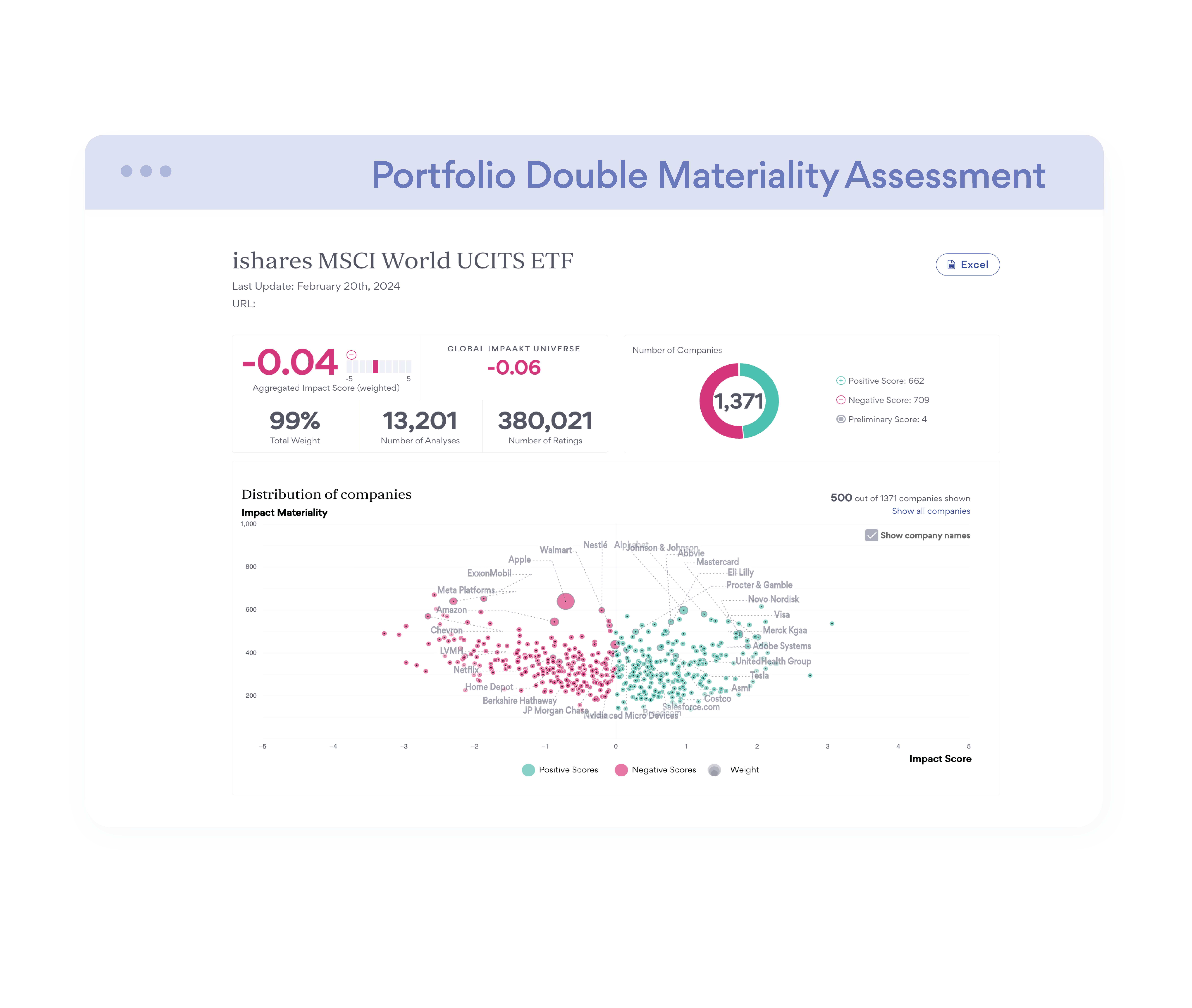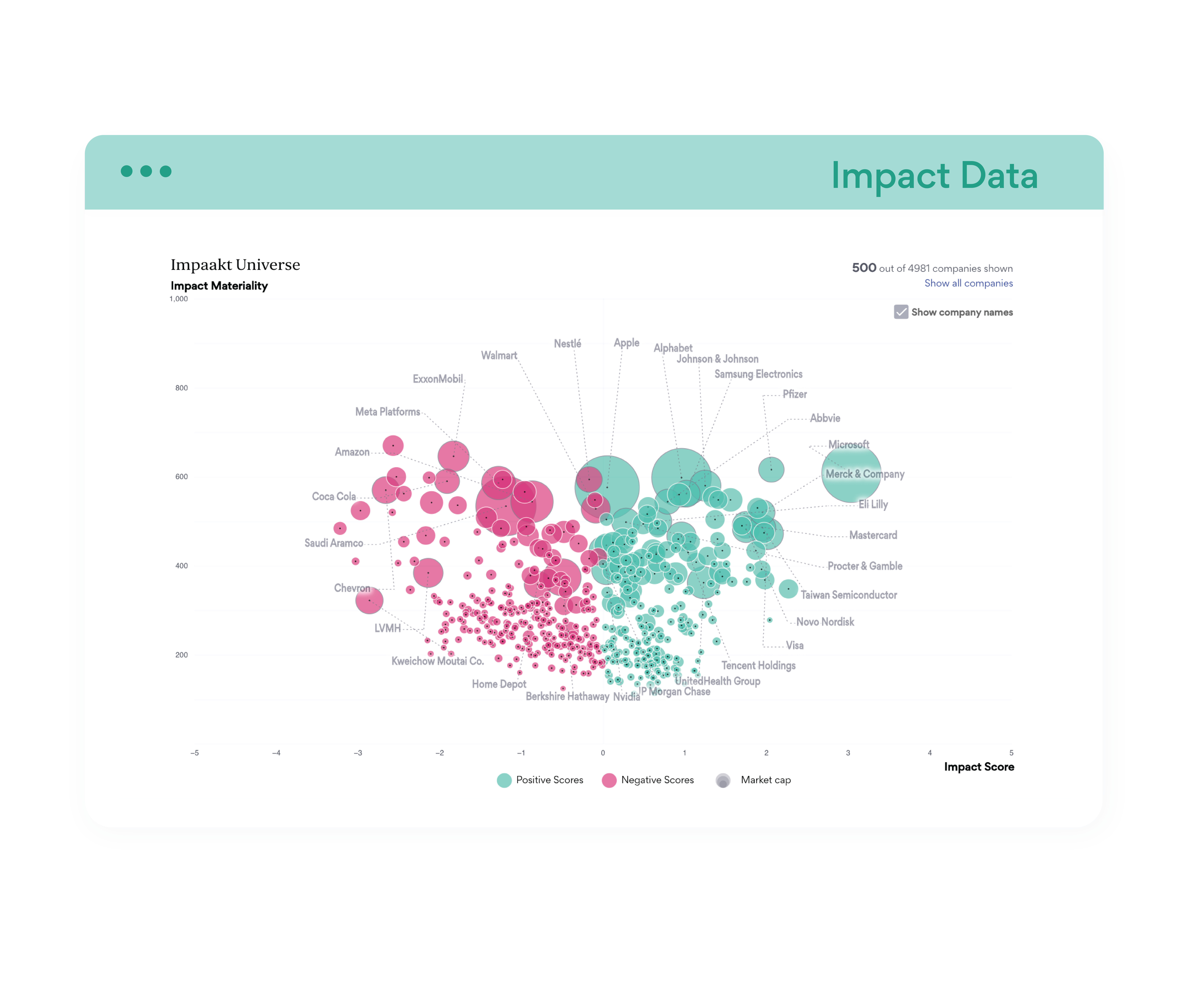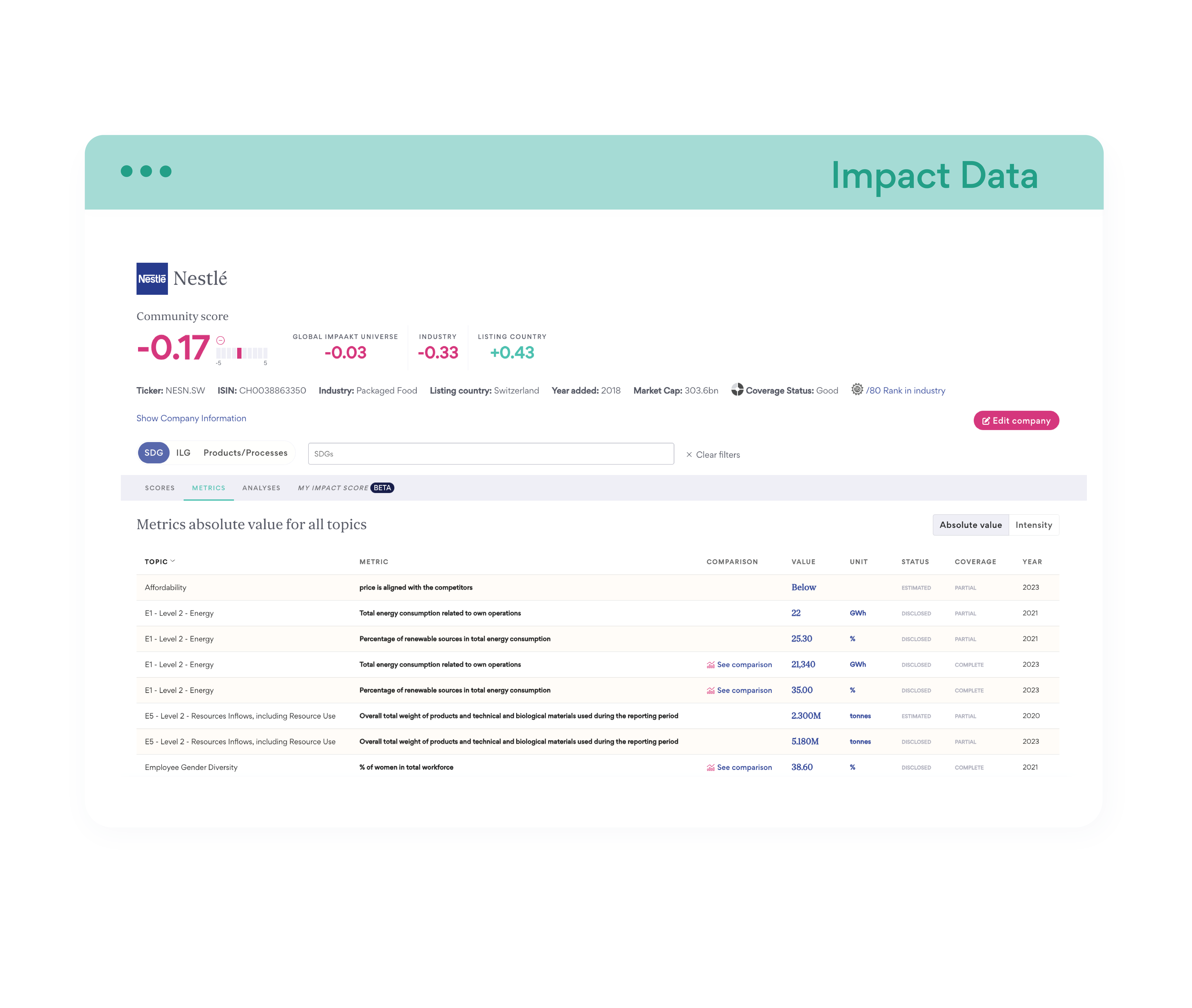Sustainability Reporting Software
For Corporates
Portfolio DMA
Financial Institutions
Sustainability as a Service
For SMEs
Impact Data
For Investors
Aligned Investments
For Citizens
Evidence-based and stakeholder-powered sustainability
Stakeholder-powered sustainability is a unique approach and can be leveraged to improve your impact-focused journey.

Sustainability Reporting Software
For Corporates
Portfolio DMA
Financial Institutions
Sustainability as a Service
For SMES
Impact Data
For Investors
Aligned Investments
For Citizens
How can Impaakt help you?
At Impaakt, we believe stakeholders are key to driving sustainability. That’s why we offer tailored solutions designed to meet your unique needs. Discover how our services can support your sustainability goals.
Watch us on BFM TV
Over
Stakeholder Assesments
0
Over
Evidence-Based Metrics
0
Over
Stakeholders
0
The World’s Top
Companies
0
Over
Stakeholder Assesments
0
Over
Evidence-Based Metrics
0
Over
Stakeholders
0
The World’s Top
Companies
0

